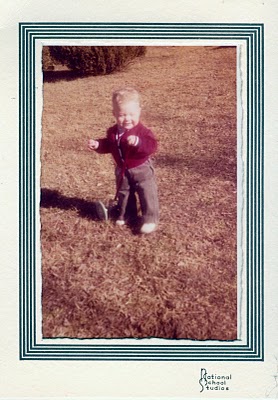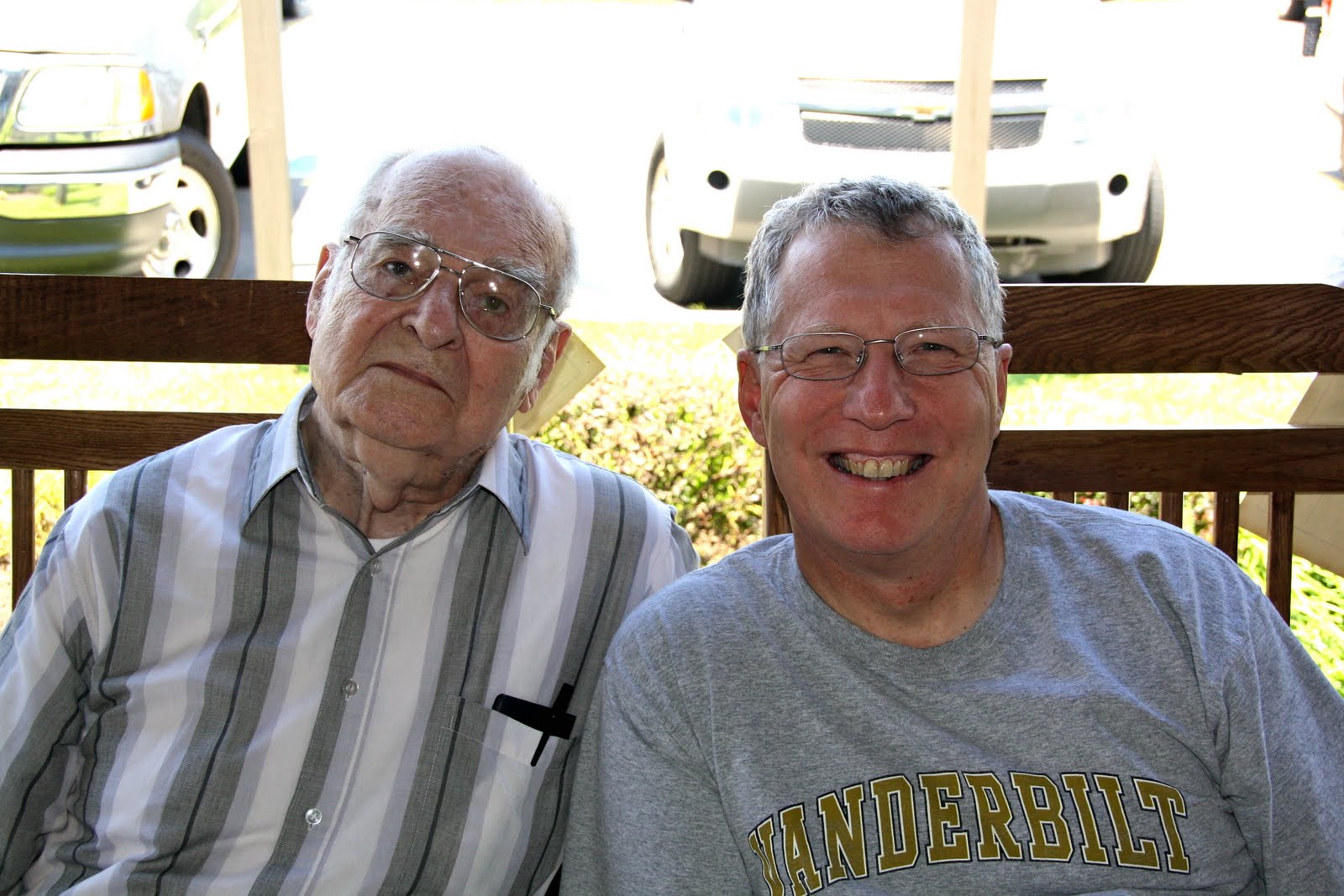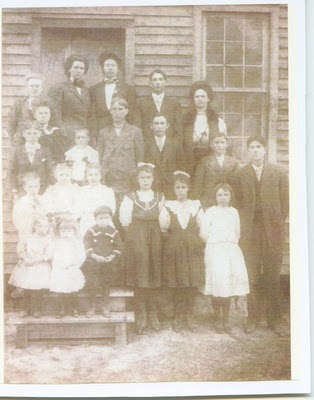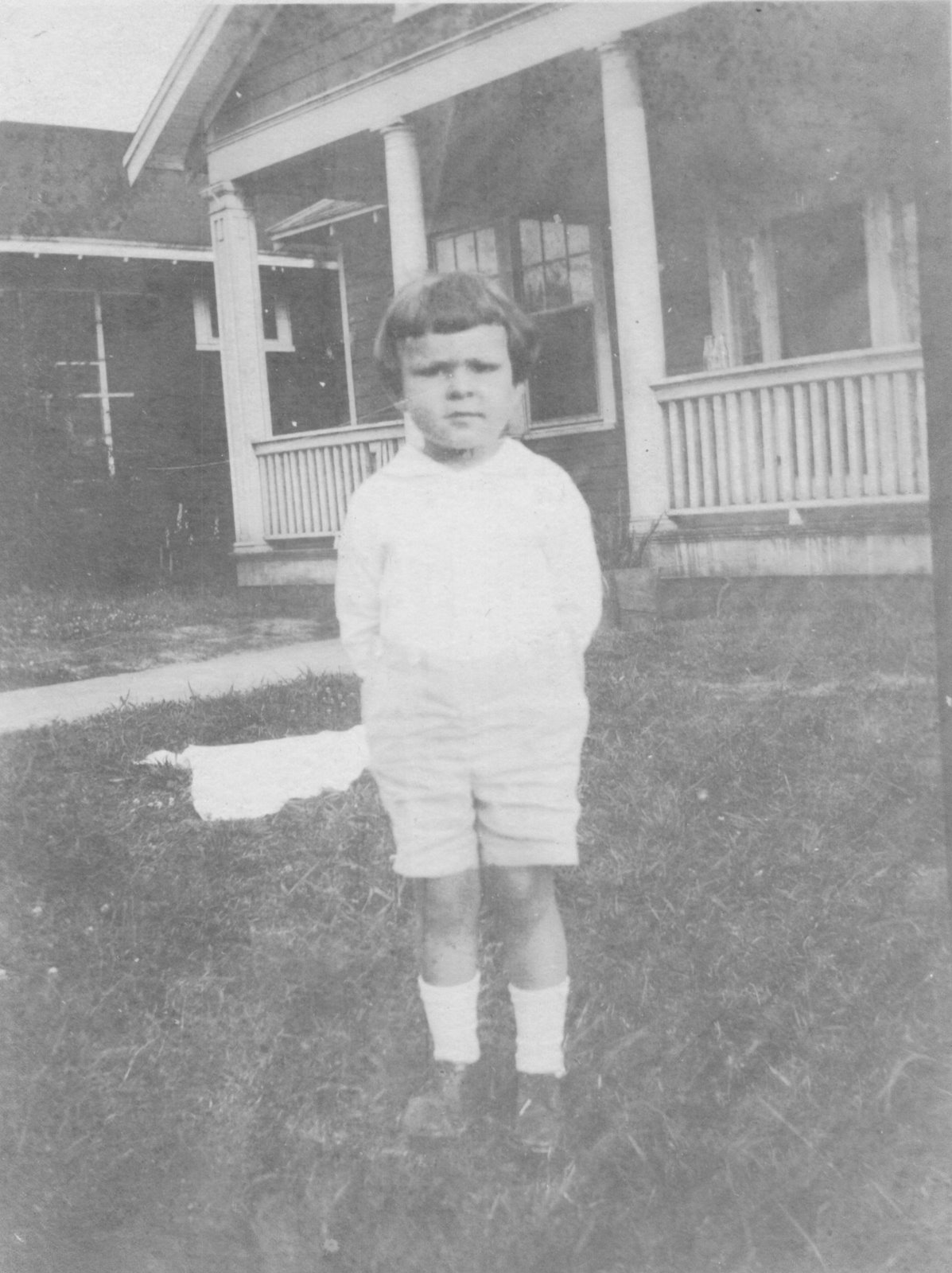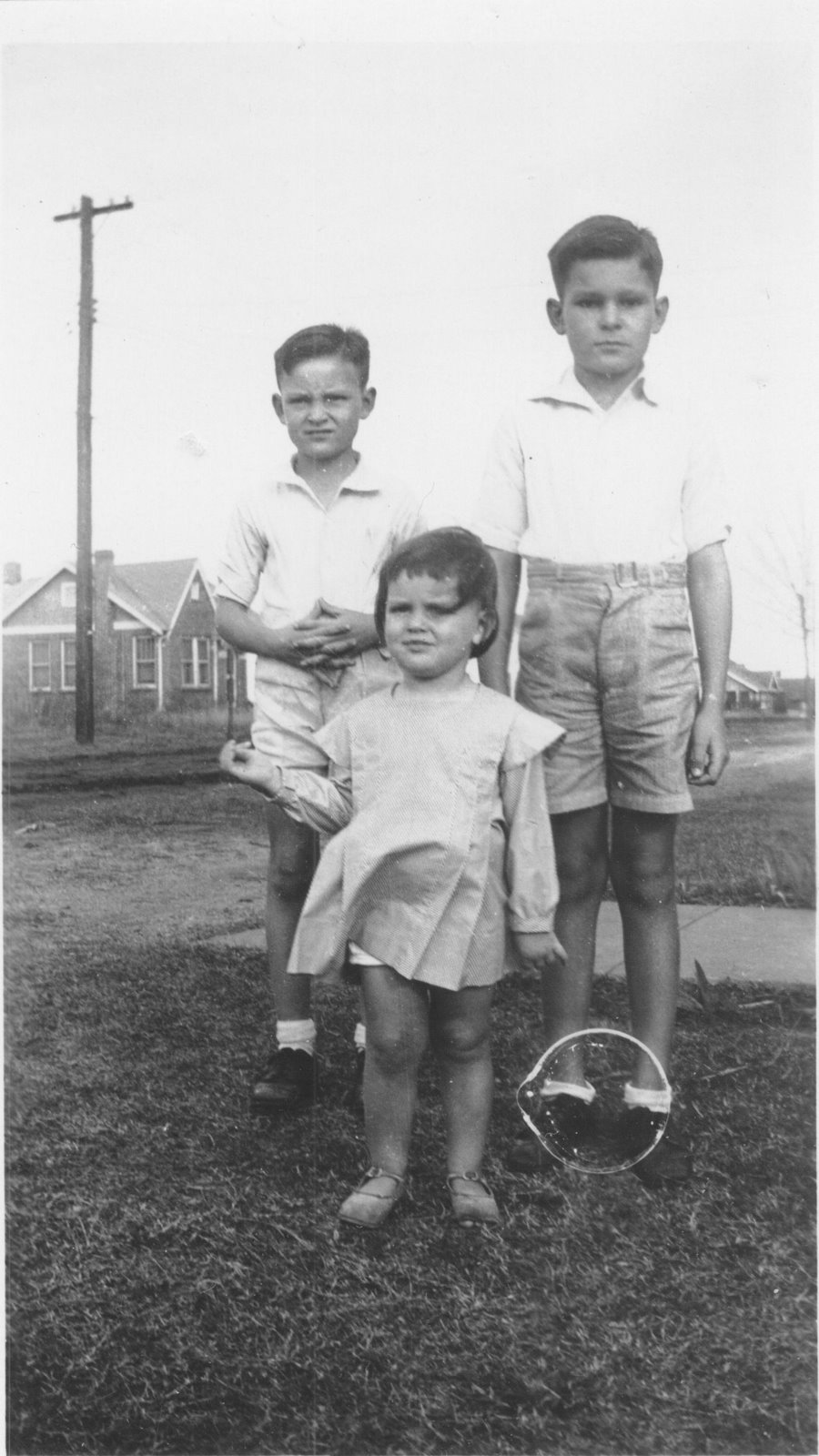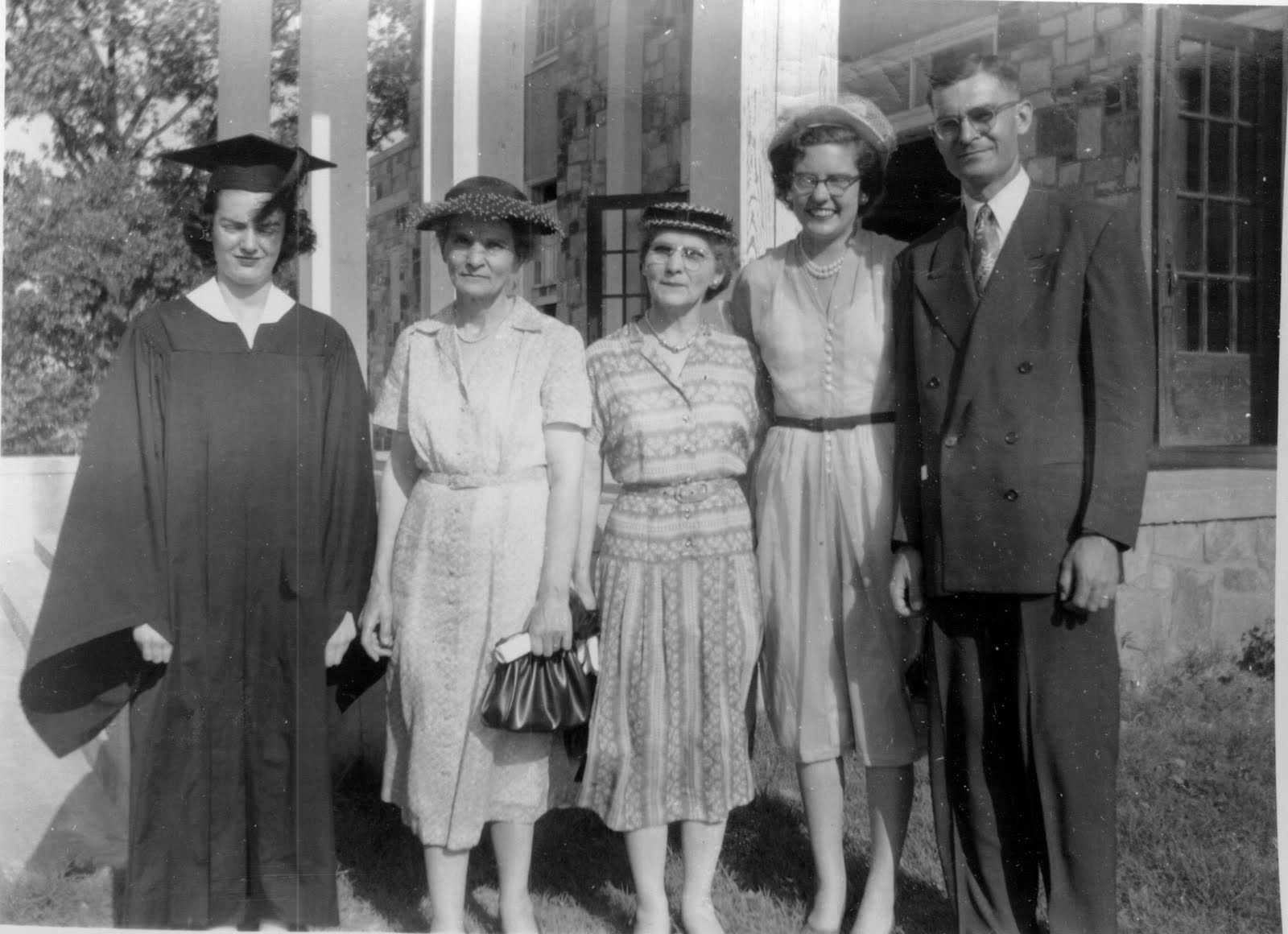(I wrote this post three years ago after my father died. Today would have been his 90th birthday.)
The most important thing I appreciate about my Dad is that, like his heavenly Father, he loved the orphan. He worked in Arkansas and Missouri orphanages, and midway through 1958 he and Mom took me into their home. Dad became the most influential person in my life – my father, pastor, adviser, and friend.
So, I played no part in the process of the most important decision ever made about me – my adoption. A good truth for a future Presbyterian minister to keep in mind.
I’ve often wondered what my life would have been like had I remained with my biological family. I know a bit about them, and assume I would have grown up in poverty, poorly educated. I never sought to contact them because I knew who my Dad and Mom were. They were the ones who made a place for me in their home. From the summer of 1958 Dad was with me and for me – always!
Also, my adoption was delayed seven months because of concerns about my mental capacity (which won’t surprise some of you). What if my adoption hadn’t been delayed? Would I have ended up in a Christian family?
I look back and am well satisfied with the decisions my earthly father and my heavenly Father made for me.
The most important influence in Dad’s life was his Dad, Tom Wingard.
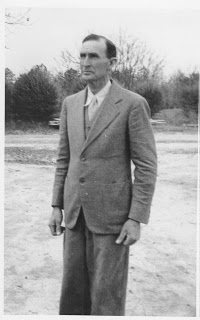
Tom Wingard grew up on Elmdale, the Wingard family farm in Montgomery County, Alabama. He attended Centerpoint School, a one-room structure located five miles from the Wingard estate, about half way between the Wingard home and Pine Level. Afflicted with arthritis at an early age, grandfather had quite a challenge each day to get there and back home. He’s in the second row from the top, second from the right.
One of the schoolmasters, a Mr. Moore, introduced Tom Wingard to the Westminster Shorter Catechism, which he took to heart. My Uncle John remembers:
Daddy, Mama and George transferred their membership from the Pine Level Methodist Church to the Graham Memorial Presbyterian Church in Forrest City, Arkansas when I made profession of faith in May, 1940. Our parents prepared us well for the Biblical and Reformed theological stance.
By age nine Dad knew he would be a minister, and given the prominent role the catechism played in his upbringing, it’s no surprise that he became a Presbyterian one, serving churches in Arkansas, Tennessee, and Virginia.
Dad was a soldier, a World War II combat veteran. The Battle of the Bulge commenced on his 21st birthday, December 16, 1944. He once told me that the Wehrmacht welcomed him to manhood. His service record notes that he received three bronze stars, but I have no idea for what. Like many other veterans of his era he chose not to talk about his service.
After my Dad returned from World War II in 1946, he continued his education at Arkansas College (now Lyon College) in Batesville, Arkansas. His father was diagnosed with cancer, so Dad bought a home in Batesville and moved Grandfather, Grandmother, and my Aunt Martha there while he worked and continued his studies. Dad told me about the hours of conversation that he had with his father during the last few months of his life.
Dad loved to learn. My Uncle John remembers that he always had a book with him. He was a good student. He read Greek, Hebrew, French, and Latin. He spoke some German. A few years ago, we got into a discussion about Xenophon’s Anabasis. He had read all of it in English and portions of it in Greek. I was impressed that he could recall clearly a text he had read more than six decades earlier.
One document I just found says he majored in both chemistry and history, but I never recall him talking about a chemistry major, and I’m almost certain that is not correct. He did, however, have a love for the sciences, excelled at math, and prior to being shipped to Europe, completed the first phase of the Basic Engineering Course at Brooklyn Polytech Institute in New York. He later received a Master of Divinity degree from Columbia Theological Seminary in Decatur, Georgia.
Dad insisted that I work hard. Sometimes he was over the top. Once, when I was in fifth grade, I came home with more than 150 math problems due in the morning. He made me stay up past midnight to complete my homework, checking every answer to make sure I wasn’t slacking off. The next morning our teacher laughed and said she supposed we figured out that she had written the assignment incorrectly. At least, I had no more math for the next week.
When I was eleven, I broke my collarbone on a Thursday. Early on Saturday Dad knocked on the door and told me it was time to get up and get out in the yard to work. I don’t suppose I gave him any new information when I pled that my arm was busted. He told me I must still help. Pull a wagon to the compost pile. Get moving.
Dad was fascinated by all things electronic. When he was in high school in Ramer, Alabama he he stayed after school many days to complete his project of the regenerative receiver, the first that many students and teachers at the school had ever seen. My Uncle John writes,
A regenerative receiver uses the principle of taking some of the circuit output, introducing it back into the original input signal, and thus adding to or multiplying the amplification of the circuit. Many beginners in the study of radio start with a crystal set, receiving local broadcasts only, and then move to a regenerative receiver to hear signals from around the world. Believe me, there is nothing spiritual about the regeneration. It is all a matter of practical electronics.
I once asked Dad for a shortwave radio for my birthday, and got one, well sort of. He gave me a boxful of transistors, diodes, capacitors, heat sinks, a tuning coil, antennae and a soldering iron, along with a schematic. I had to put it together, something that gave me no pleasure. Still, I enjoyed the radio, and it was an impetus to work hard, earn money, and buy radios at stores like normal people do.
As I recall Dad was a strict disciplinarian until I was in high school. Then his style of parenting abruptly changed. While I was in high school I lived without set rules. I was responsible for my homework. No curfews. I always had a car as long as I paid gas and insurance. During my junior and senior years, I went camping 30 weekends each year. I could work whenever and wherever I wanted (except on Sundays, of course). I suppose I could have forfeited my freedom. But I didn’t. It was a fantastic arrangement.
Dad was a conversationalist, at least with me. Hours of history, politics and theology. He always wanted me to be able to discuss both sides of an issue, insisting that I had a moral duty to understand those with whom I disagreed. Sometimes it took what seemed an eternity for him to get to a point. My first battlefield tour with him was at Kennesaw Mountain. I asked him why the armies fought. His answer began with Cain and Abel! Eventually he got to more proximate causes, but he made sure I first understood the “big picture.”
He never verbally encouraged me to enter the ministry, but he certainly set me on a course in that direction. His study door was always open and I remember him praying, reading, and writing (or banging away with two fingers on his manual typewriter). Frequently he took me on hospital and home visits. I saw him read scripture and pray with patients and families. Later, when I could drive, he would say, “Son, I’m busy today. Could you go visit Mrs. White? See how she’s doing. And don’t forget to pray and read scripture.” He sent me to homes and to hospitals. All of this was far more valuable to me than my seminary courses in pastoral theology.
He encouraged me to read books in his library. He loved books. In college Dad established, owned and managed the book store. It contained text books and other supplies that students needed. His study was the place where I began to read theology and church history.
The worship services Dad led were memorable, but for reasons one might not suspect. The high point of every worship service was not his preaching (he never claimed that to be a strength), but his pastoral prayer, which might last ten to fifteen minutes. He called down the blessings of heaven in the cadences and language of the King James Bible. Later, when I read Matthew Henry’s Method of Prayer, I thought, “That’s how Dad prays.
He also took me to Presbytery meetings and at least two General Assemblies. I heard some mighty fine oratory and an occasional spirited debate. Once at General Assembly he told me that one of the candidates held theological views that he considered heterodox. He voted for the other candidate, who lost. When the winning candidate went forward, the Assembly, as is customary, stood, that is, everyone but me. I was protesting the election of such a man! Later, Dad let me have it. “We always, always show respect for the office,” he said, “even when we disagree with the man who holds it.”
Until recently I cannot recall making a major decision without asking for Dad’s advice. I suppose you would classify him as a Rogerian counselor. He never told me what to do. He just asked a lot of questions that made me think. Whichever decision I made, he supported.
His 87th birthday was three days before his death. I called him, and we had a long talk – the usual stuff: a few questions about him, and then his barrage of questions about what I was up to, how are Lynne and his grandchildren, how’s the church. Even when we talked weekly he wanted the full update. The day before he died he called, and talked with Lynne. Lots of reminiscing with her about things I had done with him, and how proud he was of me. That was my Dad. Always interested in me, always encouraging, always praying. I already miss him.
_______________________
Pictures of my Dad from Depression era Alabama:
Dad, and then Dad and Uncle John at a tender age . . .
(l-r: Uncle John, Aunt Martha, Dad)
One thing you’ll notice in several of these pictures everyone’s got their eyes nearly shut. In those days the film was slow, and the bright Alabama sunlight was needed for a picture. Therefore, the squinting.
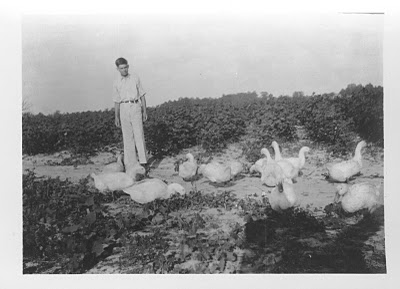
After a Depression and World War came graduation . . .
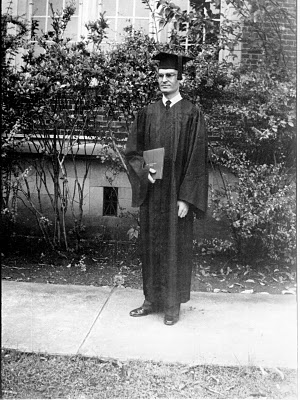
At Aunt Martha’s graduation in the early 1950s: (l-r) Aunt Martha, Grandmother, Aunt Lena, Mom, Dad)
With Uncle John . . .
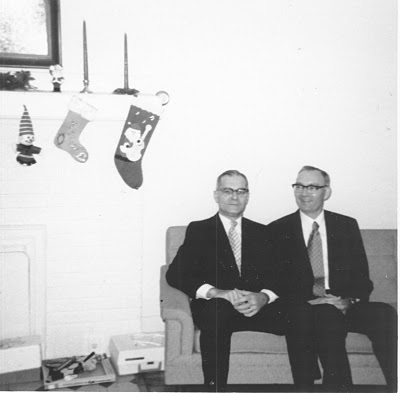
His favorite picture of me . . .
